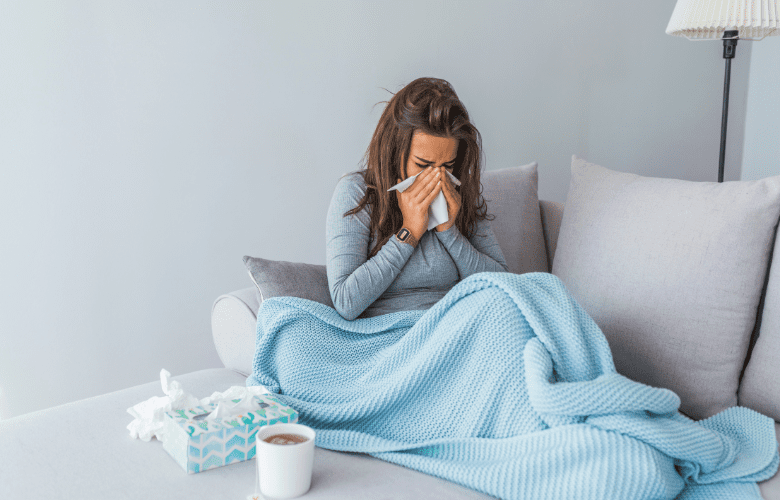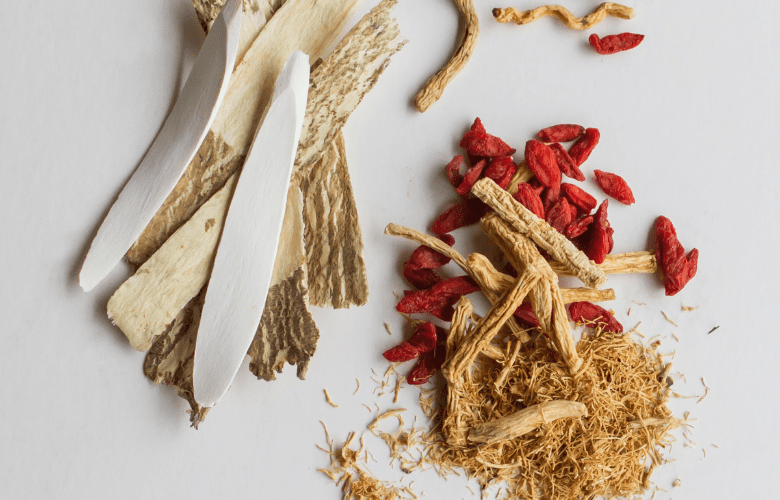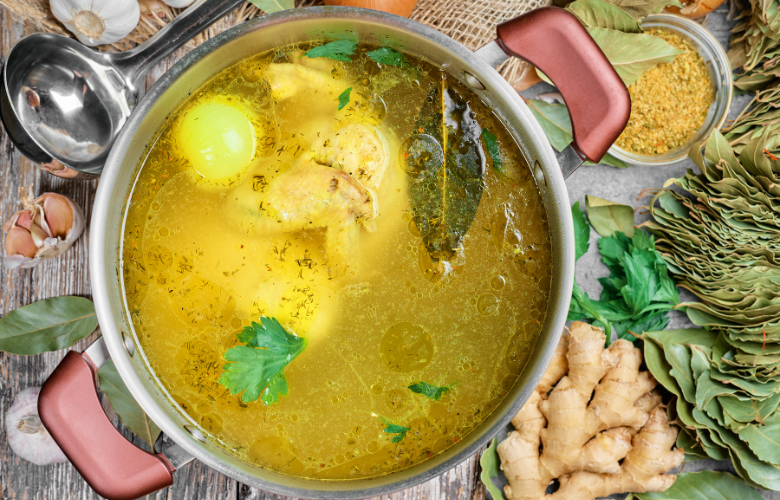Chinese Medicine Approach to Cold and Flu Season: Is it Effective?
As the temperature begins to drop, more viruses lurk in our environment. We become more susceptible to the common cold and flu. The good news is that Traditional Chinese Medicine (TCM) has long been used to prevent and treat the cold and flu. TCM can help reduce the duration of these illnesses and the severity of the symptoms.
Interestingly, immunity varies even among those who received the same flu vaccine. Over-the-counter drugs only suppress the immune system. Now more than ever, try acupuncture and Chinese herbal medicine to boost and regulate your immune system.
A strong and well-balanced immune system is very crucial. Without it, you cannot ward off and fight harmful agents, such as pathogens, that enter your body. If it’s weak or overactive, you get sick. Frequent infections show your immune system needs support.
The immune system also gets weaker as we age. It happens to everyone at a different rate, much like sagging skin.
Age-related immune system changes include the following:
- The immune system’s responsiveness slows down.
- The immune system’s capacity to recognize foreign antigens decreases.
- Less immune cells are present in the body to promote healing.
- The immune system’s ability to identify and address cell defects declines.
- Fewer white blood cells can fight novel antigens.
The good news is that you can do many things, like acupuncture, to regulate your immune system, regardless of age. It’s proven safe and effective in naturally strengthening and balancing your immune system.
The Common Cold and Flu in TCM
According to Chinese medicine, seasonal changes bring external pathogens that cause the common cold and flu. These pathogens often belong to one of six groups: wind, cold, heat, fire, dryness, or dampness.
Pathogens can appear alone or in groups in a given season or environment. The most common ones for the common cold and flu are wind-heat, wind-cold, and dampness. These invaders attack the body’s Defensive Qi ( also known as Wei Qi).
The Wei Qi is comparable to the immune system. It serves as your body’s first line of defense against infectious agents. Your lungs control this protective force. Any weakness or deficiency in the lungs can adversely affect your Wei Qi.
Your body can combat viruses if your Wei Qi is strong and balanced. Factors like poor diet and sleep deprivation can affect your Wei Qi’s state.
Additionally, you either feel hot or cold when you are sick. Some symptoms of a wind-cold invasion include chills, stiff upper back and neck, headaches, and clear nasal discharge. On the other hand, wind-heat invasion symptoms include sweating, fever, yellow mucus or nasal discharge, and a sore throat.
The cold or hot distinction is crucial in determining the best herbal formula for you. Chinese herbal medicine is an important component of TCM. The property of herbs vary and are chosen according to a person’s constitution and the stage of a cold or flu. Herbs can either be hot, cold, or neutral. For instance, fresh ginger is warming and considered a natural antibiotic that works to dispel a wind-cold invasion. When combined with scallions in tea form, it can induce sweating to clear the pathogen. Ginger’s warming effect is used to dispel cold symptoms.
Acupuncture for the Common Cold and Flu
There is no known cure for viral infections. The body must take care of its healing. Hence, acupuncture makes sense as a holistic practice to prevent or fight a cold or flu. It works by bringing your body’s systems back into balance.
Every acupuncture treatment is unique. Your acupuncturist will ask questions about your health and lifestyle during your first visit. These questions are traditionally known as the Ten Questions in Chinese medicine.
Don’t be alarmed if the questions seem irrelevant to your primary reason for considering acupuncture. Your responses will allow your practitioner to craft a treatment plan for you, that may include acupuncture, Chinese dietary recommendations, herbal remedies, and lifestyle recommendations.
Acupuncture for the immune system focuses on strengthening your Wei Qi. It involves inserting fine needles at critical points along your body’s pathways. These points are determined based on the symptoms you exhibit during treatment. Some commonly used acupuncture points to boost your immune system include Large Intestine 4, Stomach 36, and Spleen 6. Other commonly used points are Pericardium 6 and San Jiao 5. These points are effective in affecting the immune system and building vital resistance.
Cold and flu symptoms may change depending on the stage the virus is at within your body. If the pathogen is in the early stages, early acupuncture may help symptoms clear more quickly. Treatment will be different if the invader has been in your body system for a while.
Effects of Acupuncture on the Immune System
Acupuncture regulates immunity. If your immune system is overactive, it destroys and attacks its tissues. Your body’s ability to fight pathogens declines. Acupuncture can then help to balance your immune system. For others, it boosts their body’s defenses.
Regular acupuncture sessions can also increase the body’s production of immune cells. These include T cells, red blood cells, and white blood cells. They destroy viruses and harmful bacteria in your body.
The stimulation from the needles causes the brain to signal to the body to release more immune cells to fend against the invader. It also improves immunity in people with immune-related disorders by promoting the reproduction of these cells.
The heightened cellular response persists up to a month following the treatment. Isn’t that fantastic? Obtaining regular acupuncture treatments can truly keep you healthy and prevent you from contracting illnesses.
In addition, acupuncture can also lessen anxiety and stress. A 2007 study on anxious women found that acupuncture improved beneficial immune system markers and decreased harmful markers. The most favorable effects on immune functions appeared 72 hours after a single session and one month after the whole course of therapy.
Furthermore, a single acupuncture session may increase interferon levels. Interferons are proteins that “interfere” with viruses and prevent their growth. Hence, the name. They trigger killer immune cells to fight the invaders.
Finally, acupuncture speeds up healing. It helps to heal damaged tissues and may balance out immune cells in the intestinal lining. This is crucial given that 70% of our immune system lives in the gut.
Chinese Herbal Formulas to Dispel Cold and Flu Symptoms
A herbalist trained in Chinese herbs can advise you on the right herbs and how frequently to take them. Here are six of the most commonly used formulas for the treatment of cold and flu. As with any herbal formula, we strongly recommend that you speak with your practitioner before beginning any herbs. Just like medicine, herbs can adversely affect you if the wrong formula is chosen.
- Gui Zhi Tang – dispels wind cold invasion in an exterior deficient pattern. Symptoms may include aversion to wind, muscle aches, low-grade fever, and loss of appetite
- Ge Gen Tang – induces sweating to release the exterior and dispel wind-cold symptoms which may include stiff neck and upper back, headache, aversion to wind, muscle aches, sore throat, and thirst.
- Da Qing Long Tang – releases the exterior and clears internal heat. Symptoms may include fever, coughing with thicker yellow phlegm, body aches, thirst, loss of appetite, lack of sweat, feeling chilled on the outside and hot on the inside of the body
- Xiao Chai Hu Tang – a harmonizing formula, where the invasion is neither exterior nor interior. Symptoms may include coughing with watery white phlegm, body aches, itchy throat, lack of thirst, no sweating, and feeling chilled on the inside.
- Yin Qiao San – is exclusively used for early-stage wind-heat invasion possibly accompanied by heat toxins. Symptoms may include sore throat, sweating, and fever.
- Gan Mao Ling – may be used for wind-heat or mild wind-cold invasion. It is used to strengthen the immune system
Lifestyle Tips to Boost the Immune System
Along with acupuncture, here are some helpful tips to help maintain balance and harmony in your body for your immune system to function well:
- Wash hands regularly to avoid the spread of pathogens.
- Avoid close contact with people with colds or flu.
- Keep your fingers away from your eyes and nose to avoid infecting yourself.
- Eat a healthy diet. Consume whole foods, fruits, and vegetables. Broth-based foods are recommended for the sick and the elderly for easier digestion.
- Get plenty of sleep (at least 8 hours of uninterrupted sleep).
- Drink enough liquids. This will help keep the nose and throat lining from drying out.
- Make homemade chicken soup.
- Avoid mucus-producing foods and drinks: Raw foods and cold beverages; dairy, sugar, and gluten; alcohol; and deep-fried and oily foods;
- Destress! Find ways to cope with emotional stressors or learn to let them go.
- Exercise regularly in moderation.
- Dress warmly and wear a scarf.
- Take high-quality supplements as necessary.
Final Thoughts on Acupuncture and Chinese Herbal Medicine for Colds and Flu
Be proactive! An acupuncture visit is one of the best things you can do to bolster your body’s defenses. Book an initial assessment now to optimize your treatment plan in battling the cold and flu.













